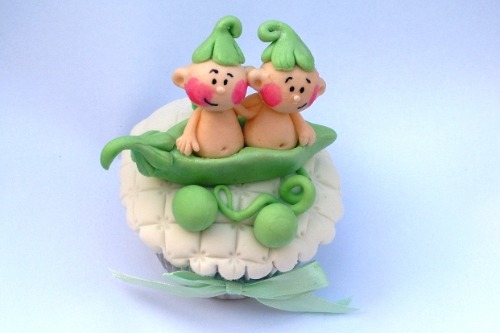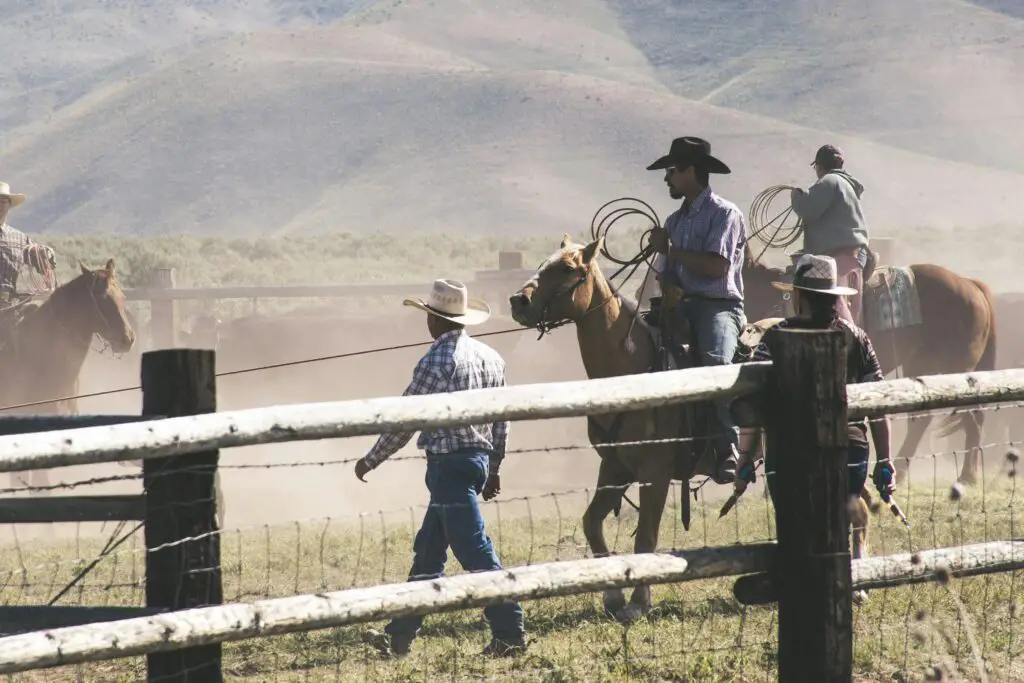1. Madder Than a Wet Hen

This is one of the toughest to decipher, according to the Pensacola News Journal. When someone says they are “madder than a wet hen,” they are expressing extreme anger—often in a humorous way. The imagery here is quite vivid; hens do not appreciate being soaked and will react frantically when wet. This saying serves as an entertaining way to convey frustration or anger without sounding overly serious. For example, if someone loses their job unexpectedly, you might hear their friend say, “Well, he’s madder than a wet hen about it!” It adds levity to what could be an otherwise tense situation.
This phrase also reflects the Southern ability to find humor in everyday life, even during challenging moments. By using such colorful expressions, Southerners can communicate feelings while keeping conversations light-hearted. So next time you encounter someone who seems particularly upset, consider this phrase—it might just bring a smile amidst their frustration!
2. Bless Your Heart

“Bless your heart” is perhaps the most iconic Southern phrase, and it can mean a variety of things depending on the context. At its core, it’s an expression of sympathy or compassion. For instance, if someone shares a misfortune, saying “bless your heart” conveys genuine concern. However, it can also be used sarcastically, particularly when someone makes a foolish mistake. Southern Living explains that it has many different meanings that require different responses. In that case, it might imply that the speaker thinks the other person is naive or clueless. This duality makes “bless your heart” a versatile phrase that can soften criticism or express genuine care.
Understanding this phrase is essential for anyone navigating Southern culture. It’s a perfect example of how language can carry layers of meaning, often reflecting the speaker’s tone and intent. So, when you hear someone say it, listen closely to the context—it might just reveal whether they’re offering comfort or a subtle dig!
3. Fixin’ To

The phrase “fixin’ to” is a quintessential Southern expression that means you’re about to do something or are in the process of preparing for it. It’s not just a casual “I’m going to”; rather, it carries a sense of intention and readiness. For example, if someone says, “I’m fixin’ to head to the store,” it indicates that they are about to leave shortly. Although according to Southern Living, they might still take their time. This phrase encapsulates the Southern approach of blending hospitality with a laid-back attitude; it suggests that plans are in motion without rushing.
Using “fixin’ to” in conversation adds a touch of authenticity and warmth, making interactions feel more personal. It reflects the Southern tendency to be polite while also acknowledging that life is happening at its own pace. So next time you’re chatting with a Southerner and hear this phrase, know that plans are being made with intention!
4. Can’t Never Could

The saying “can’t never could” emphasizes the idea that if you believe you cannot do something, then you likely won’t even try—and therefore won’t succeed! It’s often used as encouragement for someone hesitant about taking on new challenges or opportunities, according to Southern Living. For example, if a friend expresses doubt about applying for their dream job, you might say with enthusiasm, “Well, can’t never could!” This phrase serves as both motivation and inspiration within communities where support for one another is paramount.
In Southern culture, this saying embodies resilience and determination; it encourages people to adopt a positive mindset instead of giving up before even starting. It reminds us all that success often requires effort and belief in oneself. The phrase captures the spirit of perseverance that characterizes many Southern communities—where hard work is valued and dreams are worth pursuing despite obstacles. So next time you hear this phrase used in conversation, consider it an invitation to embrace challenges rather than shy away from them!
5. Like Two Peas in a Pod

According to the Merriam-Webster dictionary, when two people are described as “like two peas in a pod,” it signifies that they are very similar or inseparable friends—often sharing interests or personalities! This expression evokes images of closeness and compatibility that resonate deeply within Southern communities where relationships matter significantly. For example, if two friends always hang out together and have similar tastes in music and food, one might say they’re like two peas in a pod.
This saying fosters feelings of warmth among friends and family members while celebrating connections built over time through shared experiences together—whether at family gatherings or community events! It highlights the importance of relationships in Southern culture and serves as an affectionate way to describe strong bonds between individuals. The phrase encapsulates the essence of friendship; it suggests not only similarity but also comfort found within those connections.
6. You’re Full of Beans

When someone says you’re “full of beans,” they mean you’re energetic or perhaps talking nonsense—like when kids get too excited after eating too many sweets! The origin likely relates back to beans being associated with energy-boosting properties due to their protein content. In conversation, if someone is overly animated or making wild claims without evidence, another might chime in with “You’re full of beans!” This light-hearted jab adds humor while acknowledging someone’s enthusiasm.
In Southern culture especially known for its hospitality during gatherings (think potlucks!), using such phrases adds levity while also conveying affection or teasing among friends and family members. It’s one of those expressions that brings warmth and laughter into everyday interactions—reminding us not to take ourselves too seriously!
7. Tighten Your Belt

When someone says it’s time to “tighten your belt,” they’re usually referring to needing to cut back on spending or being frugal during tough times. This expression evokes imagery of literally tightening one’s belt due to financial constraints—a relatable scenario for many Southerners who value community support during hard times while reminding everyone not to lose hope! Financial prudence is often necessary during challenging periods; thus using such phrases helps foster resilience within communities navigating economic difficulties together.
In Southern culture characterized by hospitality yet candor between individuals involved—it serves as both playful banter while also conveying boundaries established within relationships over time too! The phrase underscores practical wisdom regarding finances while still maintaining an optimistic outlook on life’s challenges ahead; it’s all about finding balance amidst adversity! This saying resonates deeply with many who have faced economic hardships but still find ways to enjoy life despite limitations imposed by circumstances beyond their control!
8. Running Around Like a Chicken with Its Head Cut Off

This vivid image describes someone who is frantically busy or disorganized—much like how a chicken might run around erratically after losing its head! While it sounds graphic at first glance, it’s meant humorously rather than gruesomely; it’s often used among friends who understand each other’s hectic lives well enough not take offense when poking fun at one another’s chaos. For instance, if someone is juggling multiple tasks at once—like preparing dinner while helping kids with homework—they might jokingly say they’re running around like a chicken with its head cut off!
In Southern culture characterized by strong community ties where laughter helps navigate everyday life challenges—this saying embodies resilience against adversity through humor while highlighting moments when life feels overwhelming yet amusingly chaotic too! It serves as both an observation on human behavior during stressful times as well as an invitation for others join in lightheartedness amidst busyness surrounding them daily!
9. He’s All Hat and No Cattle

This phrase describes someone who talks big but doesn’t have the substance or capability to back it up—think of a cowboy who looks impressive but doesn’t actually own any cattle! It’s often used in business or social contexts where someone might be boasting without any real achievements behind their claims. For example, if someone brags about their wealth but never seems willing to contribute when it matters most—a friend might quip that they’re all hat and no cattle!
This saying reflects the Southern value placed on authenticity and honesty; people appreciate straightforwardness over showiness. When you hear this phrase being used among friends discussing someone’s bravado without merit—it serves as both an observation and gentle critique wrapped in humor! It highlights the importance of integrity within relationships built over time through shared experiences together—reminding us all that true worth comes from actions rather than mere appearances alone!
10. If You Don’t Like the Weather, Wait Five Minutes

This classic Southern saying highlights the unpredictable nature of weather in many Southern states—especially during springtime! It suggests that conditions can change rapidly so there’s no point in complaining because relief (or aggravation) is just around the corner; it’s an acknowledgment of how quickly things can shift from sunny skies to sudden downpours—or vice versa!
The phrase embodies resilience and adaptability; Southerners have learned to roll with the punches when it comes to Mother Nature’s whims while finding humor amid uncertainty surrounding daily life experiences too! This saying also fosters camaraderie among locals who share similar experiences with sudden weather changes; it’s all part of living in the South where unpredictability reigns supreme yet continues inspire stories told around dinner tables over generations past present alike!
11. Ain’t That Just Like A Man?

This expression is often used by women (and sometimes men) when referring humorously or sarcastically to typical male behavior—like forgetting anniversaries or leaving dirty socks around! It captures both frustration and amusement regarding gender stereotypes found within relationships; it creates an opportunity for shared laughter while acknowledging quirks inherent across different personalities involved!
In many ways, it reflects how humor plays an essential role in navigating everyday life challenges between partners while still fostering camaraderie among friends discussing their experiences together openly! By using such phrases during conversations surrounding relationship dynamics—it encourages openness about expectations placed upon each other without sounding overly critical either way!
12. The Proof Is in the Pudding

This idiom means that results speak for themselves; actions matter more than words alone could ever convey! Often used when discussing projects underway where outcomes remain uncertain until completion—it encourages patience throughout processes requiring effort before drawing conclusions prematurely.
Within Southern communities known for their resilience against adversity—this saying embodies hopefulness while emphasizing hard work pays off eventually regardless how daunting tasks may seem initially! It serves as both encouragement during tough times reminding everyone involved stay focused on goals ahead rather than getting discouraged by setbacks encountered along journey towards success together!
13. Well I’ll Be

This expression conveys surprise or disbelief—often used when something unexpected occurs that defies expectations! It’s akin to saying “I can’t believe it!” but with more charm and warmth characteristic of Southern speech patterns.
Imagine hearing news about an old friend achieving something remarkable after years apart; responding with “Well I’ll be!” captures both astonishment along with appreciation towards their accomplishments beautifully without sounding overly formal either way! It’s these kinds of phrases that add color richness conversations held amongst family members friends alike throughout years spent building memories together over time too!
14. Hush Your Mouth!

This playful directive is often given when someone speaks out of turn or says something inappropriate during conversation—it encourages them silence without sounding overly harsh! The charm lies within its simplicity; it gets straight point across while maintaining lightheartedness among friends.
Picture attending family dinner where one relative makes an off-color joke only for another relative exclaim “Hush your mouth!” Everyone laughs because we’ve all been there before—it fosters connection through shared experiences navigating social norms together within families! This expression reflects how language can create bonds between people even amidst disagreements by injecting humor into potentially awkward situations too!
15. Grinnin’ Like A Possum Eating A Sweet Tater

When someone is described as grinning like a possum eating a sweet tater, they’re exceptionally happy or pleased—almost childlike joy radiates from them! The imagery here evokes thoughts of contentment found within simple pleasures enjoyed by those living close nature; it’s endearing yet humorous simultaneously!
In Southern culture known for embracing joyfulness amidst life’s ups downs—using such phrases adds levity while celebrating happiness shared among friends family alike during gatherings events throughout year too! To learn more about its origins & applications today please refer back here: link. These phrases not only enrich conversations but also reflect the warmth and charm inherent in Southern culture—a delightful blend of humor, hospitality, and heartfelt connections that make life down South truly special!


